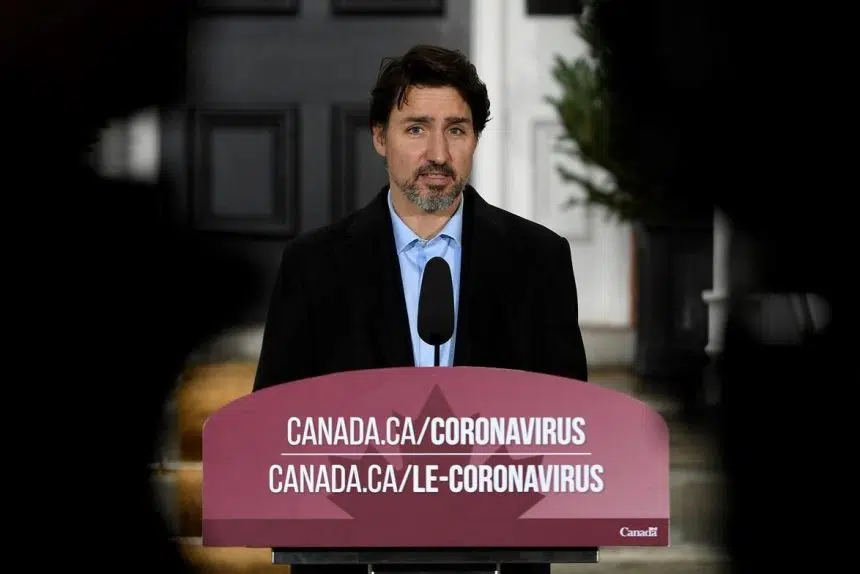OTTAWA — Prime Minister Justin Trudeau says Canada will not pay the full price for medical masks that do not live up to medical standards.
“We have been working very, very hard from the very beginning to bring in PPE,” he said Saturday.
The day before, however, the federal government suspended shipments of N95 respirators from a Montreal-based supplier after about eight million of the masks made in China failed to meet specifications.
Trudeau said the move speaks to the government’s “rigorous verification system” overseen by the Public Health Agency of Canada.
“We will not pay the full price for masks that we will not be able to use,” he said.
The prime minister did not name the price the government will pay for the sub-standard respirators, which are used to protect against the COVID-19 virus.
Some of those leftover N95 masks — so-named because they are supposed to screen out 95 per cent of small particles — may be distributed for non-medical use, he said.
The government has declined to name the distributor, citing ongoing discussions about reimbursement or discounts, or both, for the masks in question.
Canada continues to experience a shortage of personal protective equipment (PPE) amid a global surge in demand triggered by the pandemic while Canadian manufacturers scramble to pivot to PPE production.
Early this week, the Chinese Embassy in Ottawa said one million faulty N95 masks that arrived in Canada from China last month were the result of a “contractual” issue that had since been resolved.
The government has encountered some issues filtration quality and straps, Minister of Indigenous Services Marc Miller said Saturday.
The federal government has contracts with several suppliers for a total of some 135.5 million masks.
It says Canada has received 23 planeloads of personal protective equipment and medical supplies, including more than 33 million surgical masks.
Long-term care homes across the globe have suffered unduly from COVID-19, but residents in Canada’s system seem to be suffering more than others.
International data is difficult to compare, though an analysis by researchers at the University of Ottawa, University of British Columbia and the London School of Economics gives Canada the troubling distinction of having the highest proportion of COVID-19 deaths related to care homes of the 14 countries studied as of April 26.
“They’re dying in indignity in vast numbers. And that will continue if there are measures that are relaxed too soon. That is the scientific conclusion,” Miller said.
The comments came less than 24 hours after Quebec’s public health institute said deaths could soar to 150 a day in the greater Montreal area if physical distancing measures designed to limit the spread of COVID-19 are lifted.
The institute, which worked with experts from Laval University, said new cases could spike to 10,000 a day by June amid a potential “rapid increase” in hospitalizations.
Montreal has recorded 18,435 cases of COVID-19 and 1,727 deaths, making it by far the hardest-hit part of the country. On top of viral outbreaks in long-term care homes, several other parts of the greater Montreal area are witnessing sustained community transmission.
Nonetheless, Quebec plans to reopen elementary schools, daycares and retail stores with outdoor entrances in the greater Montreal area on May 25.
Dr. Howard Njoo, the country’s deputy chief public health officer, warned of the consequences of lifting restrictions prematurely.
“I’m afraid of more people dying and more outbreaks,” he said Saturday.
This report by The Canadian Press was first published May 9, 2020.
The Canadian Press







